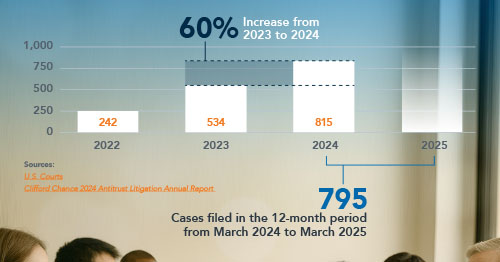
Is AI Too Expensive?
February 11, 2025
By:
Summary: Is AI too expensive for document review? Read about the key issues raised in the current debates about the ROI of AI, including initial setup costs and quality control, and how you can assess the technology’s value for you.
As AI-powered tools continue to enter legal services and corporate compliance, a recurring question is, "Is AI worth it?" The initial expenses associated with AI adoption—including onboarding and integration—can seem daunting. However, with a strategic approach, AI can achieve significant ROI and streamline document review processes.
We’ll explore some of the concerns raised in online discussion, including:
- Doubts about AI’s value due to set up, training, and sampling costs.
- Additional QC requirements when using AI.
- The preference for paying human reviewers over AI tools.

AI costs: barrier or investment?
A frequent concern is the upfront cost of implementing AI: the price of setting up the tool, training algorithms, fine-tuning workflows, and ensuring consistent quality control.
It’s worth considering whether these "hidden costs" of AI are any different from the learning curve and investment needed when onboarding and deploying large teams of human reviewers.
Are we unfairly holding AI to a higher standard of efficiency and reliability than we do manual processes? While AI requires oversight, it also accelerates insights such as potential classification or review priority, allowing teams to focus their energy on strategy rather than review.
Is AI worth the effort?
Critics argue that AI adds complexity to the document review process by adding workflows for each classification instead of relying on a team of people to decipher multiple classifications while looking at a single document
This is a question of which is more efficient: 1. one workflow that assigns multiple designations about a document (human review), or 2. multiple specialized workflows that each make one determination? Perhaps this question of whether AI is worth the effort is not a one-size-fits-all question and rather is best answered on a matter-by-matter basis.
Why use people for tasks better suited for technology?
A recurring critique is the preference to pay for first-level reviewers instead of AI solutions. This raises a critical question: Why do organizations hesitate to invest in scalable technology while continuing to rely heavily on human resources? Is it a matter of trust? Many leaders are comfortable with traditional workflows, valuing the perceived reliability of human review. However, this approach doesn’t account for the increasing scale of modern data challenges, where AI excels by processing terabytes of information in hours that would be drudgery and exceedingly difficult for humans to accomplish.
Is this default for using people for all tasks (instead of using people where they excel) over AI holding us back from greater efficiency and cost savings?
Conclusion: what does “expensive” really mean?
When we say AI is expensive, what do we mean? Is it the dollar amount attached to licensing a tool, or is it the perceived risk of stepping outside traditional methods? And how do we measure “expensive” against the cost of human error, inadvertent production of protected information, or missed deadlines?
Perhaps the question isn’t whether AI is too expensive—but rather have we defined its value correctly in the first place.
Consider the following stories of clients who used AI to cut document review costs in large, complex matters.
- A global pharmaceutical company used Lighthouse AI on a group of related matters. This enabled the company to reuse a total of 26K previous privilege coding decisions, avoiding inadvertent disclosures and heading off potential challenges from opposing counsel.
- An Am Law 200 law firm used Lighthouse AI to meet their strict production deadline and deliver results and value to their client. Using AI-enabled workflows, outside counsel saved 400+ hours of attorney privilege review time and $25K in contract review attorney costs.
As debates around AI in document review evolve, the conversation is far from over. Rather than providing a definitive answer, we encourage you to reflect: What does “expensive” mean for your organization? Is it the upfront investment—or the opportunity cost of staying the same?
The decision to adopt AI isn’t just about numbers. It’s about rethinking how we measure value in a world where the scale and complexity of data are constantly growing.
For more insights into how AI can revolutionize your document review, visit our AI for eDiscovery and AI for document review pages.








